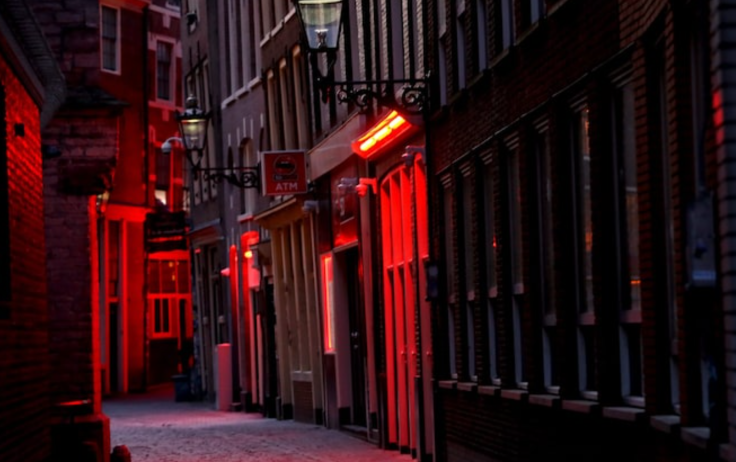Amsterdam Initiates 'Stay Away' Campaign To Limit Sex And Drug Tourism
Amsterdam government officials announced they have decided to introduce a new campaign called "Stay Away" to discourage rising rates of sex and drug tourism.
An article released by the Dutch news outlet Schengenvisa, said that the decision comes after rising rates of tourists seeking to enjoy the capital's relaxed laws toward drugs, alcohol, and sex work.
According to the report, international visitors taking advantage of marijuana, prostitution, and other freedoms are creating unprecedented problems for the city, including overcrowding and crime.

Earlier this year, Amsterdam's Mayor Femke Halsema said she wanted a temporary ban on non-residents visiting cannabis cafes or coffee shops experiencing an influx of tourists due to their popularity.
An October study said 100 out of Amsterdam's 166 cafes only serve foreign tourists.
"Many of the major problems in the city are fueled by the cannabis market: from nuisance caused by drug tourism to serious crime and violence. Banning sales to tourists is a necessary intervention... and the first step towards regulation," she told Schengenvisa.
The "Stay Away" initiative targets cannabis and drug tourists, bachelor parties, sex tourists, and over-tourism in the destination, which welcomes over 20 million foreign visitors annually.
Halsema also said that other research conducted by the Dutch government showed that 58% of foreign tourists who visited the country's capital chose Amsterdam for the sole purpose of consuming drugs.
This "Stay Away" measure also limits the number of river cruises, encourages earlier closing times for bars, clubs, and window brothels, and bans cannabis smoking in certain parts of the city.
"Some businesses misuse Amsterdam's image to sell it as a place of 'unlimited possibilities,'" Deputy Mayor Sofyan Mbarki said in a statement to CNN Travel.
"As a result, some visitors think of it as a city where anything goes. This kind of tourism, as well as offerings specifically targeting these groups, is not considered desirable by the Municipal Executive."
© Copyright IBTimes 2024. All rights reserved.











